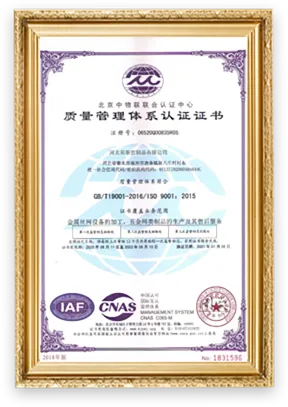Aug . 12, 2024 16:32 Back to list
Designing Protective Barriers for Agricultural Fields to Enhance Safety and Security
The Importance of Fencing for Fields A Comprehensive Guide
Fencing has been an integral part of agricultural practices for centuries, serving both practical and aesthetic purposes. When it comes to managing fields, the right fencing can make a significant difference in productivity, security, and sustainability. This article explores the various types of fences suitable for fields, their benefits, and how to choose the right fence for your agricultural needs.
Types of Fencing for Fields
The type of fencing you choose often depends on the nature of your field and the purpose it serves. Here are some commonly used fence types
1. Barbed Wire Fencing This traditional fencing option is cost-effective and suitable for keeping livestock contained. Barbed wire fences deter animals from escaping while also preventing intruders from entering the premises. However, care must be taken, as barbed wire can cause injuries to animals if not properly maintained.
2. Electrified Fencing This modern solution is gaining popularity due to its effectiveness in deterring predators and keeping livestock secure. An electrified fence delivers a mild shock to creatures that come into contact with it, discouraging them from attempting to cross. This type of fencing is particularly useful for larger properties where other deterrents may fail.
3. Wooden Fencing While more aesthetically pleasing, wooden fences can be expensive and require regular maintenance. They provide excellent visibility and can add character to a farm, but they may not be the most effective option for containing aggressive livestock.
4. High-Tensile Fencing Made from high-strength wire, these fences are incredibly durable and can withstand significant tension. They are often used for larger fields and are effective in containing various types of livestock. High-tensile fences require fewer posts than traditional wire fences, making them an economical option in the long run.
5. Vinyl Fencing This low-maintenance option is resistant to elements like water and fading. While it may come at a higher initial cost, it can be a long-lasting solution with minimal upkeep. Vinyl fencing is best for decorative purposes rather than high-security needs.
Advantages of Proper Fencing
Investing in the right fencing for your field offers numerous benefits
fence for field

- Animal Control Proper fencing establishes boundaries, preventing livestock from wandering into neighboring fields or potentially dangerous areas. This control is imperative for both the safety of the animals and the surrounding environment.
- Crop Protection By keeping wildlife at bay, effective fencing helps protect crops from destruction. Deer, rabbits, and other animals can cause significant damage to crops, affecting yield and profitability.
- Increased Security Fencing adds a layer of security to your property. It deters thieves and intruders, thereby protecting your valuable equipment and resources.
- Enhanced Aesthetics Besides their functional benefits, fences can enhance the visual appeal of your fields. Well-maintained fencing can elevate the overall look of your property, making it more attractive to visitors and potential buyers.
Choosing the Right Fence
When selecting a fence for your field, several factors should be considered
- Purpose Determine whether the primary purpose of your fence is to contain livestock, protect crops, or offer security.
- Budget Costs vary significantly between fence types. Consider both initial installation costs and long-term maintenance expenses.
- Maintenance Some fencing options require more upkeep than others. Assess how much time and resources you can allocate to maintenance.
- Local Regulations Be aware of any local laws or regulations that may dictate the type of fencing you can install.
In conclusion, fencing is a crucial element in the effective management of fields. By choosing the right type of fence, you can enhance security, control animal movement, and protect your crops. With a clear understanding of your needs and the options available, you can make an informed decision that benefits your agricultural operations in the long run.
-
Weather Resistance Properties of Quality Roofing Nails
NewsAug.01,2025
-
How Galvanised Iron Mesh Resists Corrosion in Harsh Environments
NewsAug.01,2025
-
Creative Landscaping Uses for PVC Coated Wire Mesh Panels
NewsAug.01,2025
-
Common Wire Nail Dimensions and Their Specific Applications
NewsAug.01,2025
-
Choosing the Right Welded Wire Sheets for Agricultural Fencing
NewsAug.01,2025
-
Anti - Climbing Features of Razor Wire Barriers
NewsAug.01,2025









